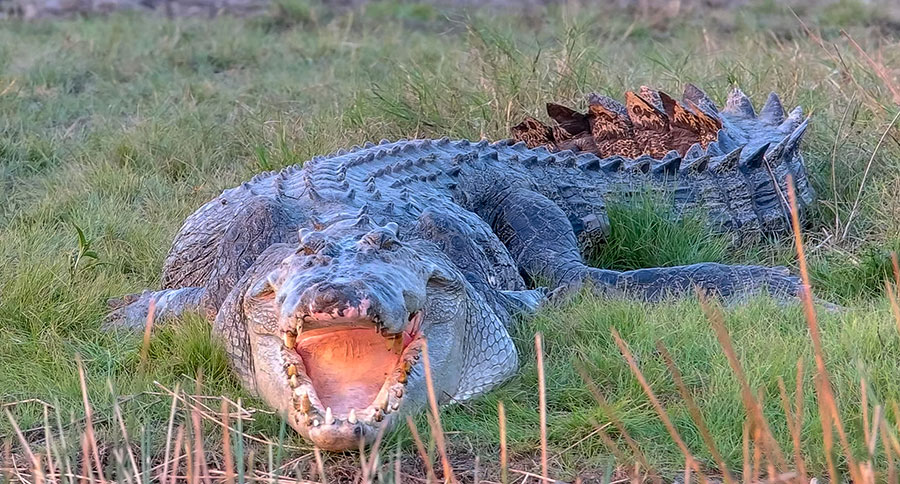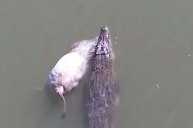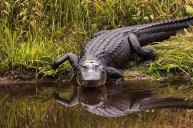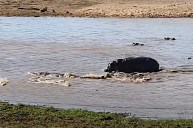Saltwater crocodiles are known to grow huge, but a 770-pound, 14.5-foot reptile captured near a tourist destination is enough to inspire some eyebrow raising.
When word of the 770-pound crocodile that was captured in Australia hit the virtual news cycle, it was only a matter of time before the giant reptile's story got shared far and wide.
That's usually the case when such a large Australian animal, reportedly the largest crocodile to ever be taken from the Flora River, winds up in the news.
As reported in the Associated Press, wildlife rangers with the Northern Territory Dept. of Tourism, Sport and Culture helped capture and relocate the croc after sightings at a remote nature park near Katherine, Australia led to the need to take action.
Biggest Crocodile Ever Trapped in Australia's Flora River
Katherine senior wildlife ranger John Burke said that a larger 15.5-foot croc was trapped three years ago in the same wildlife management zone, but that one was caught in the Katherine River, which is closer to the sea. The more-recently caught male crocodile was the largest to be taken from the Flora River, as far as Burke or anyone else knew.
Australia's tropical north region has seen an uptick in saltwater crocodile numbers ever since they became a protected species by federal law in the early 1970s.
"They certainly are increasing (in number), and that's part of the reason we have the management zones—to reduce the numbers in high-visitation areas so there's less chance of interaction between salties and people," Burke said.
The giant salty will be relocated to a crocodile farm and likely become part of a breeding program. Farmed crocs can be used for meat harvest or leather production.
Capturing large crocodiles is a serious and consistent business in Australia, and there's even an interactive map and running list of recent captures on Australia's Northern Territory website.
Trapping saltwater crocs typically involves large cages baited with wild pigs or other meat and submerged underwater in common croc-infested locations.
It sort of makes us Americans glad that we only need to worry about encountering these types of crocs, and not the real thing.
NEXT: YOUNG HIPPO USES A FULL-GROWN CROCODILE AS A TOY
WATCH





